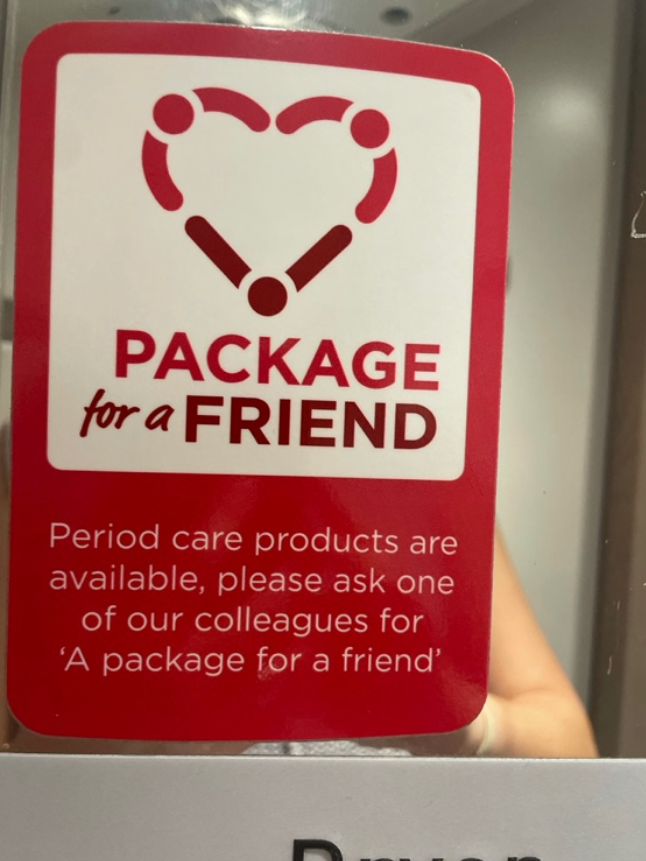Name It, Don’t Shame It: How to Talk About Periods Openly
“Menstruation is a natural part of life that has important health and societal implications, yet it remains rarely spoken about and stigmatised” (Anon, 2024). For something that happens to 1.8 billion people every month, menstruation is surprisingly difficult to talk about. And when periods are mentioned, the conversation is dominated by myths, shame, and exclusion. But the language we use matters, more than we might think, and it's time we talked about how to make these conversations more open and inclusive.
The Problem with "That Time of the Month”
We've all heard them: “Aunt Flo is visiting”, “Lady Business”, “That time of the month”. Catchy? Maybe. Harmless? Not at all. Our inability to actually say the word period or menstruation reinforces the idea that menstruation is something embarrassing, something that shouldn’t be named out loud. In doing so, we suppress the voices of menstruators in public discourse and most concerningly discourage menstruators from seeking medical help for menstrual-related problems. The ripple effect is significant in hindering career prospects, deepening poverty and widening gender gaps.
“Package for a friend?”
The practice of euphemising menstruation extends far beyond how we name our periods, it permeates the very infrastructure designed to support menstruators. Take London North Eastern Railway’s (LNER) messaging, for example:
During a recent journey from Edinburgh to London, I photographed this sign in an LNER toilet explaining that for customers to access period products, they must ask an employee for a “package for a friend". According to research, it is vital that policies that expand access to menstrual knowledge and resources do not reinforce existing stigmas and gender disparities (Anon, 2024). But naming period products a “package for a friend”, is, in my opinion, one of the most convoluted euphemisms in the menstrual discourse landscape. Who even is this mysterious friend they are trying to refer to? It’s a pad, not contraband.
This language choice is particularly troubling given its context; in the very space that is designed to accommodate menstruation – a toilet – menstruators are bombarded with roundabout language that reinforces stigma and shame. The implications are significant when we consider the reach of such messaging: countless Edinburgh students and other passengers regularly use these facilities, absorbing this rhetoric during their travels.
Beyond "Women's Issues" and Finding the Right Terms
For decades, menstruation has been framed exclusively as a "women's issue.” But not all women menstruate; some never have, some have reached menopause, some don’t for medical reasons, and some are pre-menstrual. At the same time, not all people who menstruate are women. Transgender men, non-binary people, and others experience periods without identifying as women.
So how do we talk about menstruation in a way that challenges cis-gendered menstruation as the norm? Scholar Chris Bobel, in New Blood: Third-Wave Feminism and the Politics of Menstruation (2010) uses the term “menstruators”. This term “expresses solidarity with women who do not menstruate, transgender men who do, and intersexual and genderqueer individuals” (p.12). “Menstruators” focuses on shared experiences rather than assumed gender identity. This term does not come without criticism; however, “cis menstruators” and “trans menstruators” have been proposed as a way to recognise different experiences of menstruation across the gender spectrum.
Furthermore, some have raised valid concerns that "menstruators" reduces individuals to a single bodily function, potentially ignoring the complexity of their lived experiences and identities. It's a fair point. We are all so much more than any single biological process. A thoughtful alternative is "people who menstruate". This phrasing maintains inclusivity while acknowledging the full personhood of individuals. It's more than a semantic difference; it's a recognition that menstruation is something people experience, not something that defines them entirely.
Language Has Power
Here's the thing about language: it's not just a mirror reflecting reality. It actively shapes how we understand and experience the world. This is what scholars mean when they say language is performative. The words we choose don't simply describe menstruation— they actively influence how we think and feel about it. When we consistently use euphemisms and coded language, we perpetuate the very stigma we want to dismantle. Changing how we talk about periods might feel awkward at first. That’s okay. What is important is that we strive to reconsider our language. Because if language has power, it can be used for change, and the more normal we make these conversations, the easier they become for everyone.
Bobel, Chris. 2010. New Blood: Third-Wave Feminism and the Politics of Menstruation. New Brunswick, NJ and London: Rutgers University Press.
Talking openly about menstruation (2024) Nature Human Behaviour, 8(11), p. 2069. doi: 10.1038/s41562-024-02083-4.

